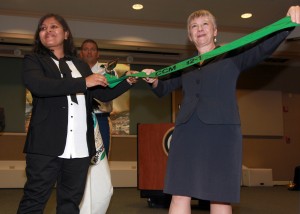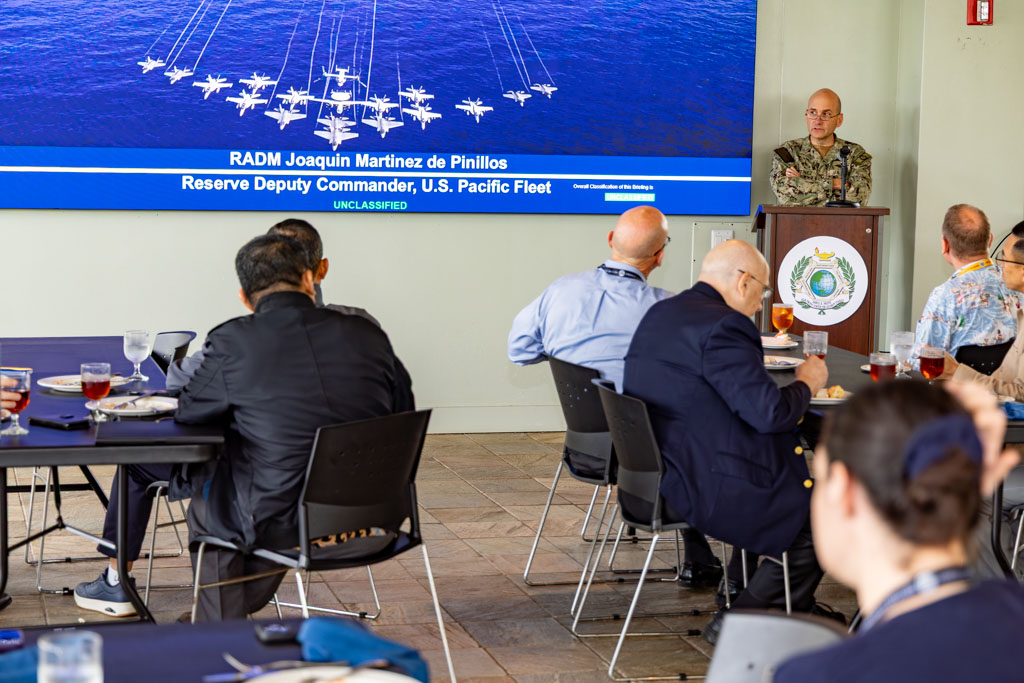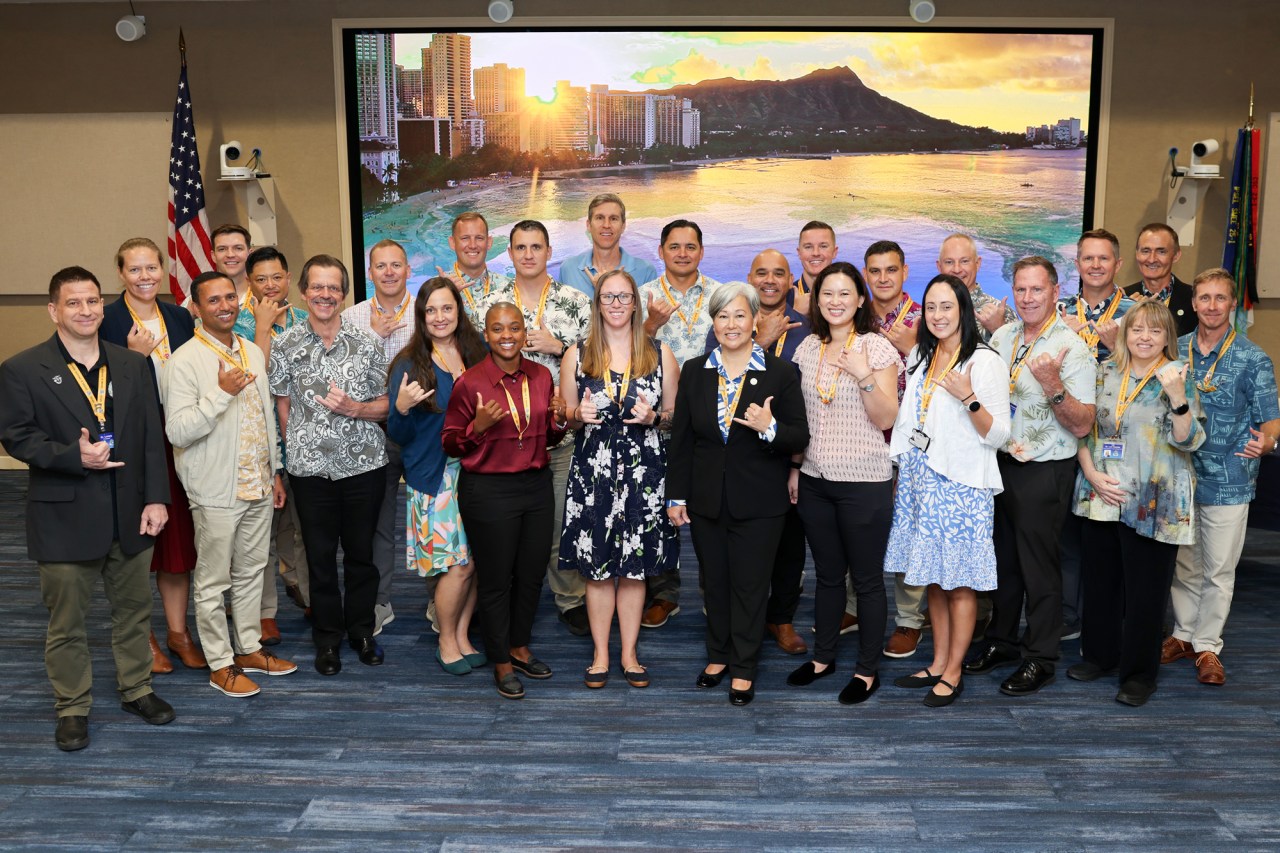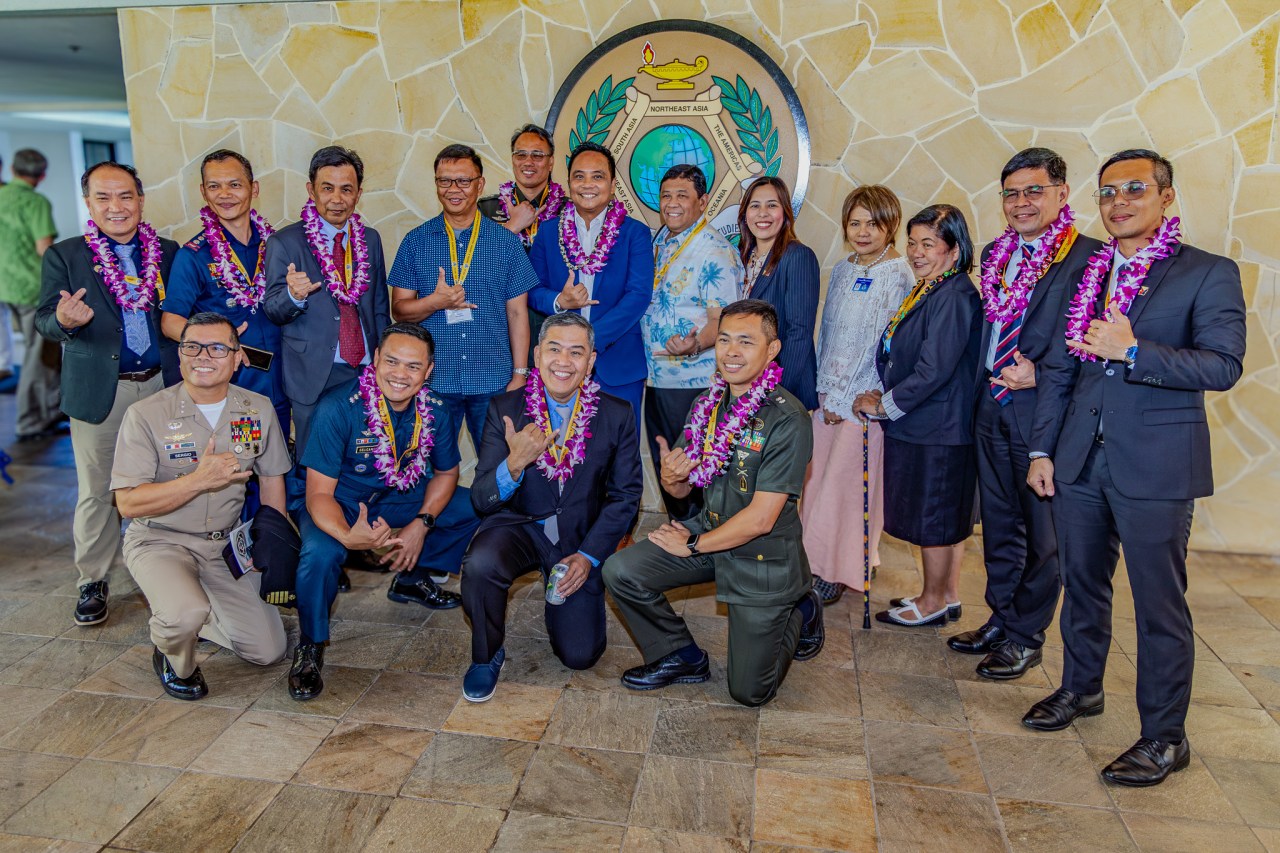 Seventy-three military and civilian government leaders from 32 countries, territories, graduated September 18 from the Asia-Pacific Center for Security Studies “Comprehensive Crisis Management Course.”
Seventy-three military and civilian government leaders from 32 countries, territories, graduated September 18 from the Asia-Pacific Center for Security Studies “Comprehensive Crisis Management Course.”
Attending the regional security course were representatives from: Australia, Bangladesh, Bhutan, Cambodia, China, Fiji, Guatemala, India, Indonesia, Kiribati, Lebanon, Malaysia, Maldives, Mauritius, Micronesia, Mongolia, Nepal, Pakistan, Palau, Papua New Guinea, Philippines, South Korea, Sri Lanka, Taiwan, Tanzania, Thailand, Tonga, Turkey, Tuvalu, United States and Vietnam.
The four-week CCM course is intended to deepen attendees’ abilities to understand and deal with the multi-faceted, interdependent nature of both natural and man-made crises. The course focuses on actions to prevent routine difficulties from collapsing into crisis, responding to crises in ways that reduce the near-term impact, and setting the stage for mid-term return to a sustainable development path. In addition to this conceptual frame work, the CCM course also addresses CCM-task coalition building and operations, inter-agency coordination, stability trends analysis and preventive activities, as well as international interventions, post-emergency reconstruction, transition shaping and strategic communications.
Associate Professor Herman Finley, a seminar leader, pointed out that although the class was composed of a widely diverse group of mid-level officers and officials, that through the course they had learned how to work together. He added, “By sharing operational experiences, they left here much better equipped to handle future assignments.”
The Asia-Pacific Center for Security Studies is a Department of Defense academic institute that addresses regional and global security issues. Military and civilian representatives, most from the U.S. and Asia-Pacific nations, participate in a comprehensive program of executive education, professional exchanges and outreach events, both in Hawaii and throughout the Asia-Pacific region. The Center supports the U.S. Pacific Command by developing and sustaining relationships among security practitioners and national security establishments throughout the region. APCSS’ mission is to build capacities and communities of interest by educating, connecting, and empowering security practitioners to advance Asia-Pacific security. It is one of the Department of Defense’s five regional security studies centers.
Since opening in 1995, APCSS has had representatives from 104 countries and territories, and four international organizations attend courses at the Center for a total of 6,819 alumni.
-End-










Aloha, I’m part of CCM12/1, thank’s for all the guidance. The modules cover most of the issues of crisis ie manmade or natural. It give me an open mind and the important of collaboration with all agency’s to prepare for any crises. Mahalo.
So glad you were able to be part of our course!